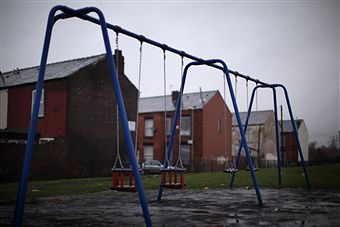 This morning, Fraser published a piece criticising the Institute for Fiscal Studies’ definition of poverty. Here is a
counterpunch from Julia Unwin, Chief Executive of the Joseph Rowntree Foundation, which is the organisation that funds the IFS. This article is the latest post in our Right to Reply series.
This morning, Fraser published a piece criticising the Institute for Fiscal Studies’ definition of poverty. Here is a
counterpunch from Julia Unwin, Chief Executive of the Joseph Rowntree Foundation, which is the organisation that funds the IFS. This article is the latest post in our Right to Reply series.
Do we really need another debate about the usefulness of a poverty measure? Of course, no definition is perfect. One of the hardy perennials of the poverty debate is the question of measurement. I wonder what it says about us as a country: why do we spend so much effort thinking about definitions of poverty, and so little responding to the reality? All measures of poverty have their uses — and, yes, their flaws. Criticising the measures, as Fraser does, is only a way of hiding from the shocking reality which is that many of our fellow citizens are living in the sort of poverty that strangles their potential, and makes it impossible to contribute to society.
The latest forecast of poverty from the respected IFS looks at a whole lot of different measures and each tells the same, alarming story. Using all the evidence at their disposal, the IFS predict a substantial rise in poverty. Whether you look at relative poverty, absolute poverty or poverty before and after housing costs, you see the same grim story: poverty is going up and will continue to do so until 2020. The figures alone are startling and troubling, but the fact that they can be predicted with such authority at a time when the introduction of the Universal Credit is being introduced with its own positive and substantial impact on poverty is worrying indeed.
What does this range of figures tell us? Quite simply that the number of people who are poor is going to increase. The only thing that prevents the level of relative poverty being even worse is that earnings and real household incomes are stagnating for the vast majority. The figures also tell us that, thanks to the combination of the state of the economy and the measures currently in place, we have no prospect of achieving the sort of reductions in poverty to which this government is committed.
So, what do we do when faced with reports like these? We can read them and despair, or we can address the well-documented and widely-recognised underlying drivers of poverty. The instability and insecurity of so many poorly paid jobs, the limits to child care for working parents, and the educational inequality which condemns people to a life of poverty. We can design jobs that help people to progress, and at the same time support families and break the damaging cycles that lie behind these figures.
The IFS study has reminded us, in clear and unambiguous ways, that arguing about the different measures of poverty is at best a distraction and at worst a way of failing to acknowledge the damage done both to individuals and to a society facing such rapid and dangerous increases in poverty.






Comments